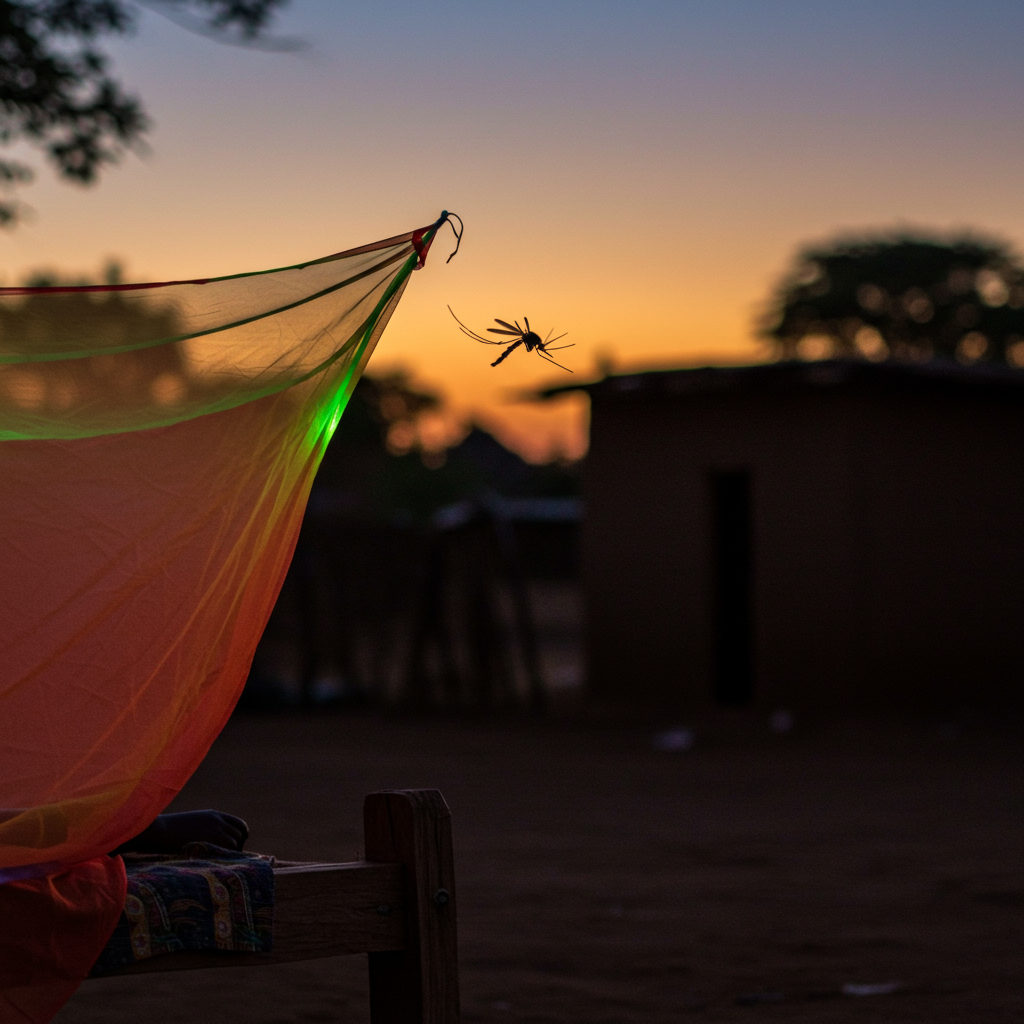Malaria remains one of the world’s most devastating diseases, responsible for hundreds of thousands of deaths each year, primarily among young children and pregnant women in vulnerable regions. Transmitted by female mosquitoes carrying the Plasmodium parasite during a blood meal, fighting malaria effectively requires innovative strategies.
For decades, a primary weapon against malaria has been controlling the mosquito population or preventing bites, most notably through insecticide-treated bed nets. These nets serve a dual purpose: they provide a physical barrier and kill mosquitoes that land on them. However, a significant challenge has emerged: mosquitoes in many areas are developing resistance to insecticides, rendering these traditional tools less effective.
This growing problem highlights the urgent need for new approaches beyond simply killing the insect vector. Scientists are actively researching diverse methods, from vaccine development (a complex task given the parasite’s nature) and improved diagnostics to novel vector control strategies.
A Novel Strategy: Treating the Mosquito Directly
Researchers at Harvard University are proposing a groundbreaking new strategy: treating the mosquitoes themselves to eliminate the malaria parasite they carry. Instead of focusing solely on killing the mosquito, this approach aims to make the insect incapable of transmitting the disease, even if it survives contact with control measures.
According to lead researcher Dr. Alexandra Probst, focusing only on killing mosquitoes “is no longer cutting it” due to rising resistance. The Harvard team explored a different angle: targeting the Plasmodium parasite while it resides within the mosquito host.
How the New Treatment Works
The research involved analyzing the malaria parasite’s DNA to identify vulnerable points during its life cycle within the mosquito. Scientists screened a vast library of potential drugs, narrowing down to 22 promising candidates. These drugs were tested in the lab by feeding them to female mosquitoes alongside a blood meal infected with malaria parasites.
The study, published in the journal Nature, identified two specific drugs that proved remarkably effective, achieving a 100% kill rate of malaria parasites within the tested mosquitoes under laboratory conditions.
The proposed method for delivering these drugs in the real world is innovative: coating bed nets with the drug cocktail. Mosquitoes that land on or rest on these treated nets would absorb the drugs through their legs. This means that even if a mosquito is resistant to the insecticide on the net and survives the encounter, absorbing these drugs would clear its parasite infection, preventing future transmission to humans.
Potential Advantages and the Road Ahead
This novel method offers several potential benefits. Researchers suggest that the malaria parasite may be less likely to develop resistance to these specific drugs when exposed in the mosquito host compared to a human host. This is because the parasite load is significantly lower in a mosquito (typically fewer than five parasites) compared to billions in an infected person, reducing the genetic pool where resistance mutations can arise and spread.
Furthermore, laboratory tests indicate that the drugs remained effective on the net material for up to a year, suggesting this could be a potentially long-lasting and cost-effective supplement or alternative to insecticide treatments.
While the lab results are highly promising, the next crucial phase is real-world validation. A large-scale field trial is already planned in Ethiopia to test the effectiveness of these drug-treated bed nets under natural conditions. Researchers estimate that these extensive studies will take at least six years to complete before the full viability and impact of this approach can be definitively determined.
The long-term vision is a multi-layered defense strategy. Bed nets could potentially be treated with a combination of both traditional insecticides and these new anti-malarial drugs. This dual approach would provide a crucial backup: if mosquitoes develop resistance to the insecticide, the drug treatment could still clear the parasite infection, and vice versa, creating a more robust barrier against transmission.
This research represents an exciting and unique addition to the global arsenal against malaria, complementing ongoing efforts in vaccine development, diagnostics, and other vector control measures in the complex fight to eradicate this deadly disease.
References
- https://www.bbc.com/news/articles/c1j554pgjgko
- https://www.bbc.co.uk/news/articles/c1j554pgjgko
- https://www.yahoo.com/news/scientists-propose-novel-way-treating-231046318.html
- https://www.niaid.nih.gov/diseases-conditions/malaria-strategies




